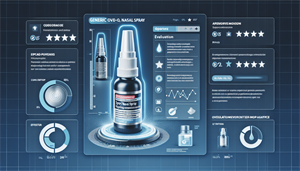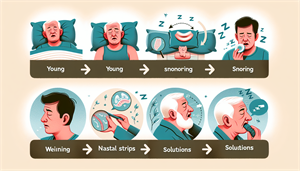
Diabetes and Snoring
Snoring and diabetes might seem like unrelated issues, but there’s growing evidence suggesting a significant connection. Those nightly disruptions could hint at a greater risk of developing diabetes, or impact those managing the condition.
In this article, we tackle the nature of the relationship between diabetes and snoring, supporting you in understanding how snoring can reflect and affect diabetes risk.
Key Takeaways
Obstructive sleep apnea syndrome (OSAS) has a significant link with type 2 diabetes, impacting glucose metabolism and insulin resistance, thereby increasing diabetes risk.
Snoring, particularly frequent/habitual snoring, is a potential predictor for diabetes beyond other factors like body mass index, underscoring the importance of snoring patterns in diabetes risk assessment.
Lifestyle factors such as alcohol and tobacco use, alongside weight management and sleep quality, play critical roles in the risk and management of snoring and related conditions like diabetes.
Understanding Sleep Apnea and Its Connection to Type 2 Diabetes Mellitus
Sleep apnea, a condition marked by interrupted breathing during sleep, is more than just a cause of daytime drowsiness and loud, disruptive snoring at night. It’s a sleeping disorder that poses serious health risks. One such risk is the development of type 2 diabetes mellitus, a chronic condition that affects the way your body metabolizes glucose. Obstructive sleep apnea syndrome (OSAS), the most common form of sleep apnea, is especially linked to diabetes.
In a study by Elmasry and colleagues, patients with obesity and OSAS had notably elevated levels of fasting blood glucose and fasting serum insulin compared to patients without OSAS. This finding indicates a significant impact on glucose metabolism, a key factor in the development of diabetes. Further research has confirmed this connection.
A study involving Chinese adults found that habitual snoring, a common symptom of sleep apnea, was identified as a risk factor for type 2 diabetes. This link held true even when taking into account body mass index, family history of diabetes, and self reported snoring.
Defining Obstructive Sleep Apnea Syndrome
You might wonder what Obstructive Sleep Apnea Syndrome (also known as obstructive sleep apnoea syndrome), or OSAS, really is. Well, it’s a sleep disorder that manifests as excessive daytime sleepiness, loud snoring, and episodes of stopped breathing during sleep. This often results in waking up with gasping or choking. The typical indicators also encompass morning symptoms such as a dry mouth or sore throat.
OSAS primarily stems from the relaxation and constriction of the throat walls when you sleep, which can obstruct the upper airway, leading to interrupted breathing. This can also contribute to the development of other health issues, such as chronic kidney disease, due to its impact on glucose metabolism and blood pressure regulation.
The Impact on Glucose Metabolism
Sleep apnea significantly alters glucose metabolism. Sleep apnea, particularly obstructive sleep apnea (OSA), induces physiological alterations in glucose metabolism, including glucose intolerance and insulin resistance.
These alterations are worsened by intermittent hypoxia and systemic inflammation during sleep apnea episodes. Insulin resistance is intricately linked to sleep apnea. It disrupts glucose metabolism as a result of sleep disturbances.
The heightened insulin resistance is a separate consequence of sleep apnea that can contribute to the onset of type 2 diabetes. The disruptions in glucose metabolism, including impaired glucose regulation and beta-cell dysfunction brought on by sleep apnea, can markedly elevate the likelihood of developing type ii diabetes mellitus.
This shows how sleep apnea goes beyond causing broken sleep and loud snoring - it can fundamentally disrupt the body’s metabolic processes.


